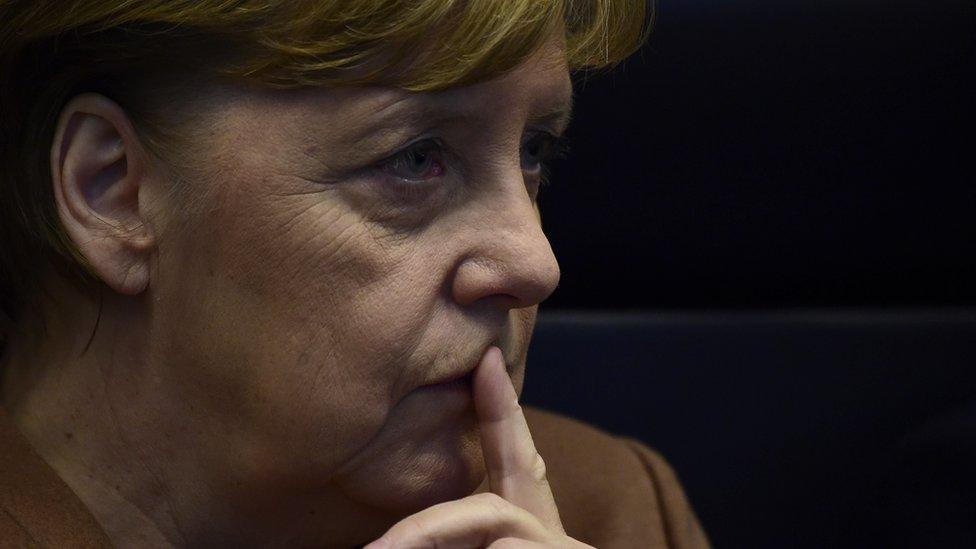Why holidays in Majorca could decide who runs Germany
- Published
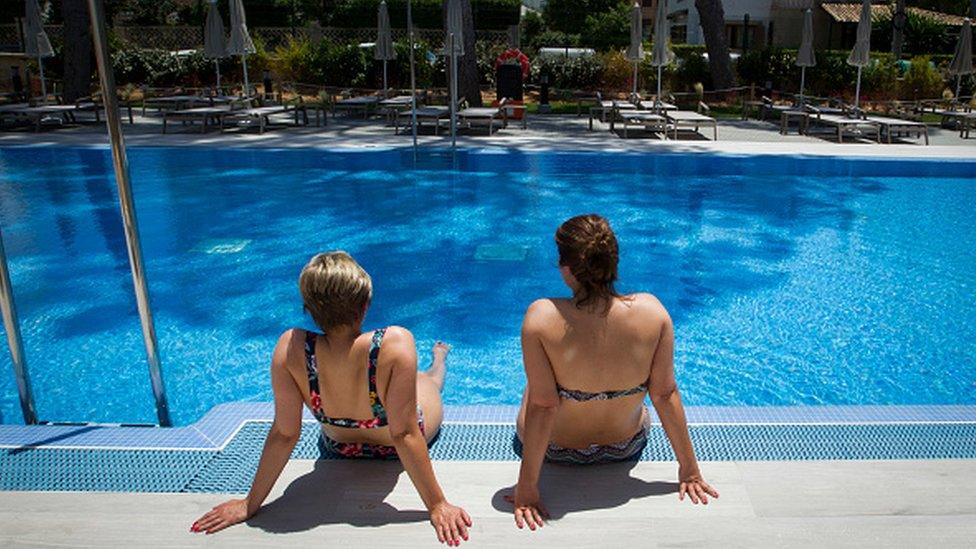
Could the political future of influential Germany really depend on voters having a sun-drenched summer holiday?
Absolutely. At least according to Angela Merkel biographer Margaret Heckel. I was chatting to her this week after polls in Germany suggested the country's Green Party could win September's general election. For the first time in its 41-year history.
That would be a real sea-change after 16 years with careful, conservative Merkel at the helm.
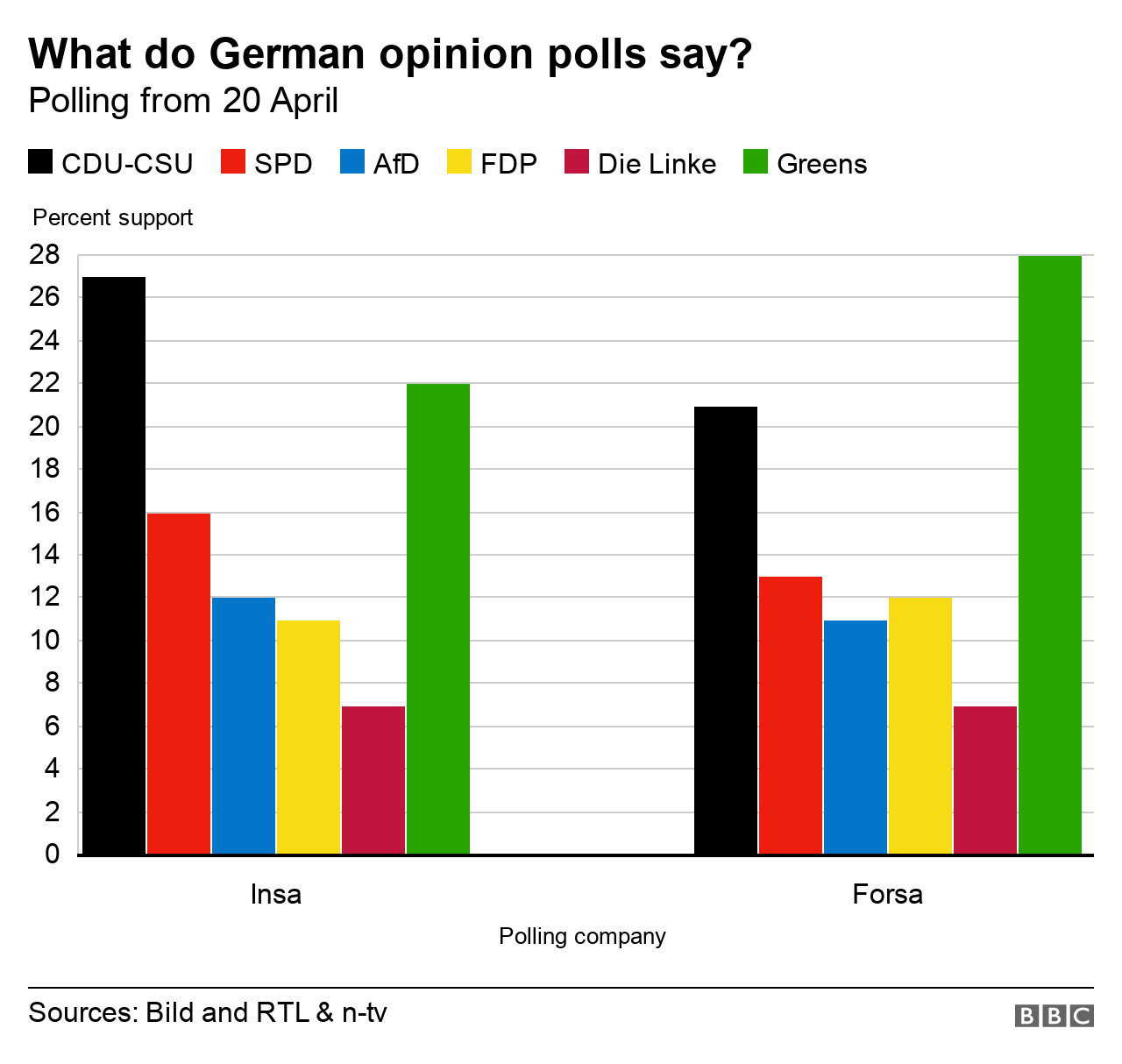
Margaret's theory is: Germans are "so grumpy and bad-tempered at the moment" - the result of seemingly endless on-off Covid lockdown restrictions and a vaccine rollout that got off to a bumpy start. To put it politely.
But IF, as the country hopes, needles now make it into the majority of adult arms over the next weeks; and IF that enables Germans to take their favourite holiday breaks in Majorca (so beloved is the Spanish isle to German tourists, that they've dubbed it Germany's 17th state) and elsewhere in the Med this summer, THEN they could well return home in September, re-energised and ready to try out something very new: a Green chancellor.
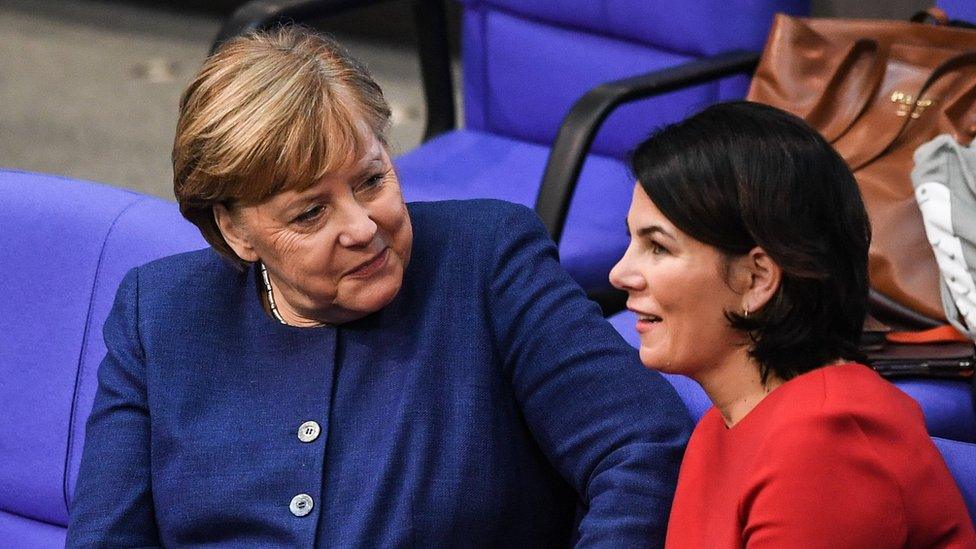
The Greens' candidate for chancellor Annalena Baerbock (R) has joined the race to succeed Angela Merkel
The choice of chancellor come the autumn can be roughly summarised as:
A centre-left 62-year-old male seasoned politician from the Social Democrats, Olaf Scholz, currently Germany's finance minister
A 60-year-old male conservative career politician from the CDU/CSU political union, Armin Laschet, currently regional president of one of Germany's most populous states
A 40-year-old female Green chancellor candidate, Annalena Baerbock, who's never held political office outside her own party.
To understand which way German voters might jump, it's also fundamental to appreciate who these three candidates are not. And that is: Angela Merkel.
Germany's safe pair of hands
Chancellor Merkel has dominated German politics - and to a large extent, European Union affairs too - for almost two decades now.
Seen as a safe pair of hands to risk-wary Germans, she has consistently been more popular amongst voters than her conservative CDU party. Ahead of Germany's last general election she simply used the campaign slogan "You know me" to win herself another four years in the hot seat.
Armin Laschet, the conservatives' new chancellor candidate is, like Merkel, a pro-EU centrist but he's not very popular, even amongst members of his own party.
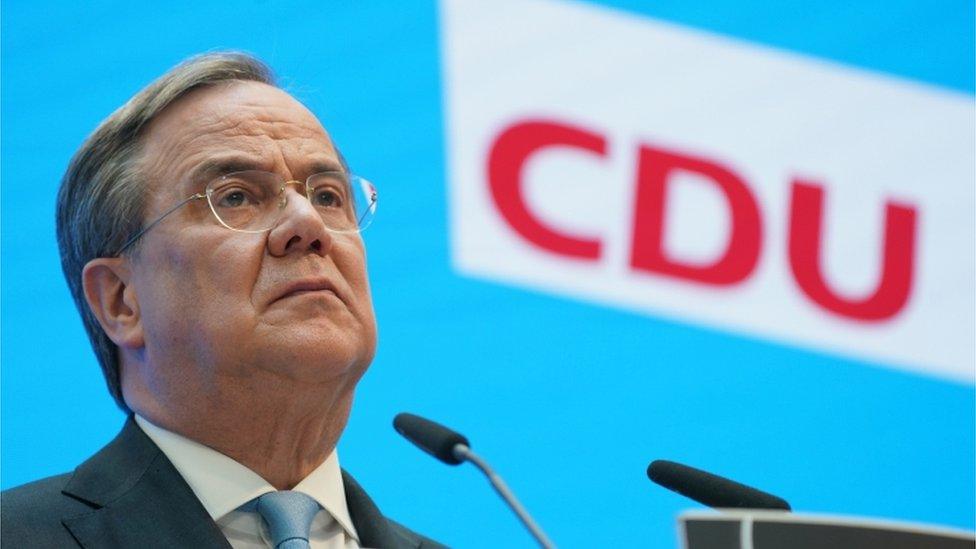
Mr Laschet convinced his CDU party this week to favour him over the more charismatic leader of Bavaria
Voters who don't identify as politically conservative, but who once supported Angela Merkel, might now be tempted elsewhere.
But to the Greens?
Well, yes. Possibly, to the Greens.
Germany's Green Party is tried and tested, both at national and regional level in coalition governments.
Far from being a one-issue political pony, the party has clear ideas beyond environmental policy, to economic and international affairs and the role it wants Germany to play on the EU stage too. You could sum that up as digging deeper into German pockets to help economically weaker European Union countries.
Crucially for German voters, the Green candidate for chancellor, Annalena Baerbock, is a centrist member of her party. What Germans call a Realo (respecting realpolitik) rather than a Fundi (fundamentalist).
There's a good chance Annalena Baerbock could woo the female vote too. Or at least a good chunk of it.
Women made up 52% of support for Merkel's conservative party in the last federal election.
You now hear some critics of the conservative and the social democrat chancellor candidates dismiss them as "old, white men" or "same old, same old".
Trained trampolinist
A generation younger, Mrs Baerbock seems fresh-faced by comparison, though opponents cite her lack of political experience as a big negative.
Enthusiasts compare her to the popular, young female prime ministers in New Zealand and Denmark, judged to have dealt more effectively with the coronavirus pandemic than a number of high-profile older, male peers.
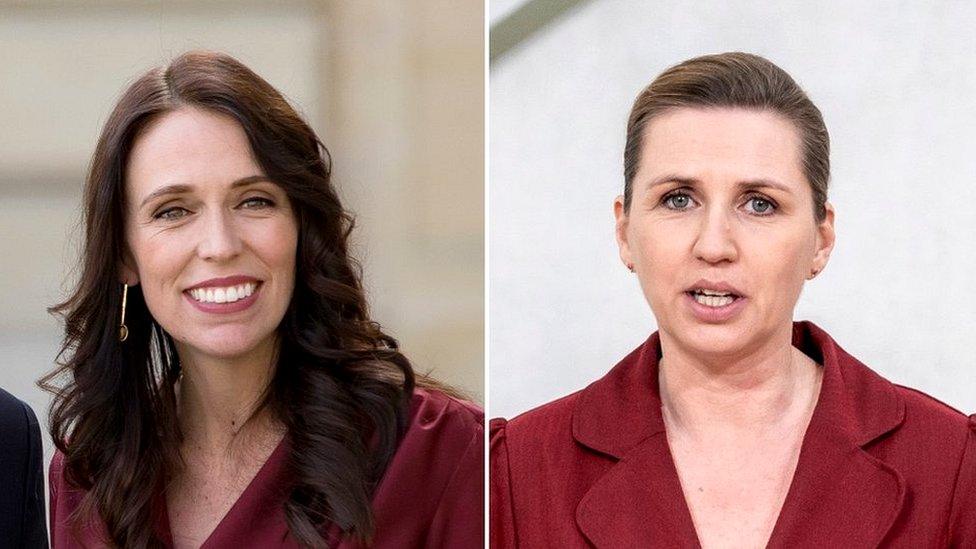
The Greens' candidate has been likened to New Zealand's Jacinda Ardern (L) and Denmark's Mette Frederiksen
Baerbock supporters eagerly point out that the Covid vaccine rollout has in part been hindered by GP offices in Germany not being linked digitally.
It may come as a surprise to those outside Germany, who view it as a rich, smoothly run country, but critics of successive Merkel governments say they failed to invest sufficiently in domestic infrastructure, the digital economy and energy transition.
All three are areas the Greens have pledged to focus on.
The Organisation for Economic Co-operation and Development (OECD), a leading international agency, insisted in December that investments in those areas would be needed to help Germany recover faster from the impact of the pandemic.
Since Annalena Baerbock trained as a trampolinist, observers of the normally staid German political scene are now busy musing whether she might "bounce" the country into a new forward-looking era, amongst other springy clichés.
But it's far too soon to write off Mrs Baerbock's well-connected political rivals on the centre left and centre right.
Historically, Germany's Green Party tends to poll better than it performs on election night.
Also, of course, the vote isn't till 26 September.
If we political journalists have learned anything over the last years, it's that five months is a very long time in politics. And firm predictions are for fools.
- Published20 April 2021
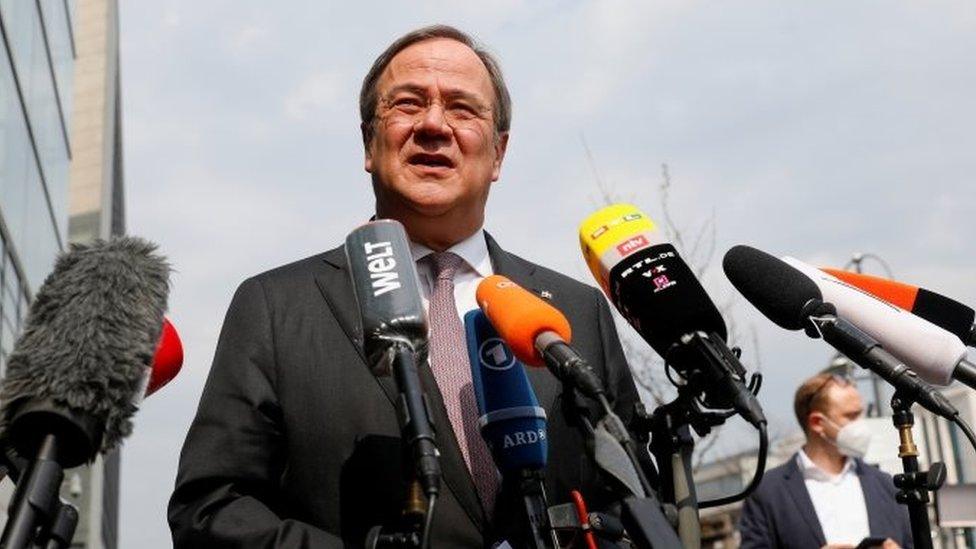
- Published15 March 2021
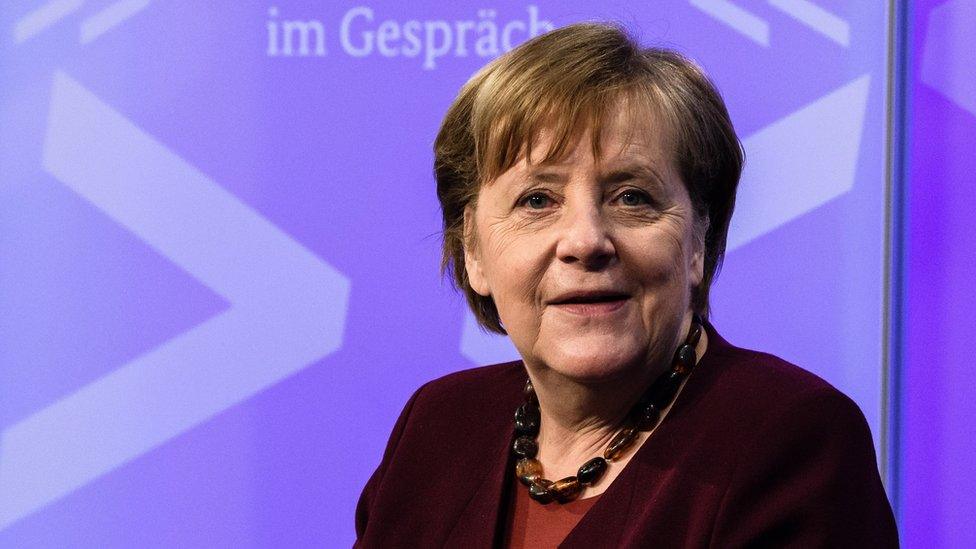
- Published27 September 2021
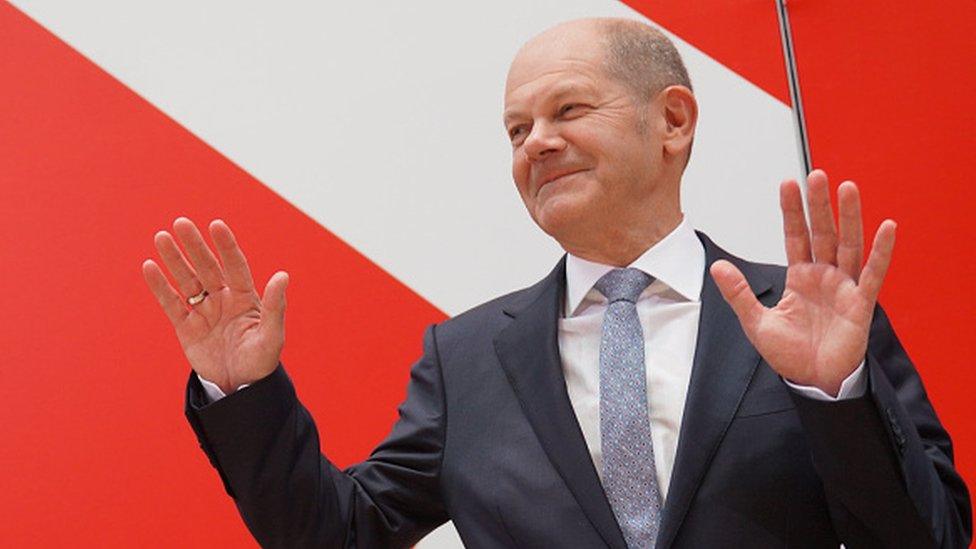
- Published19 April 2021
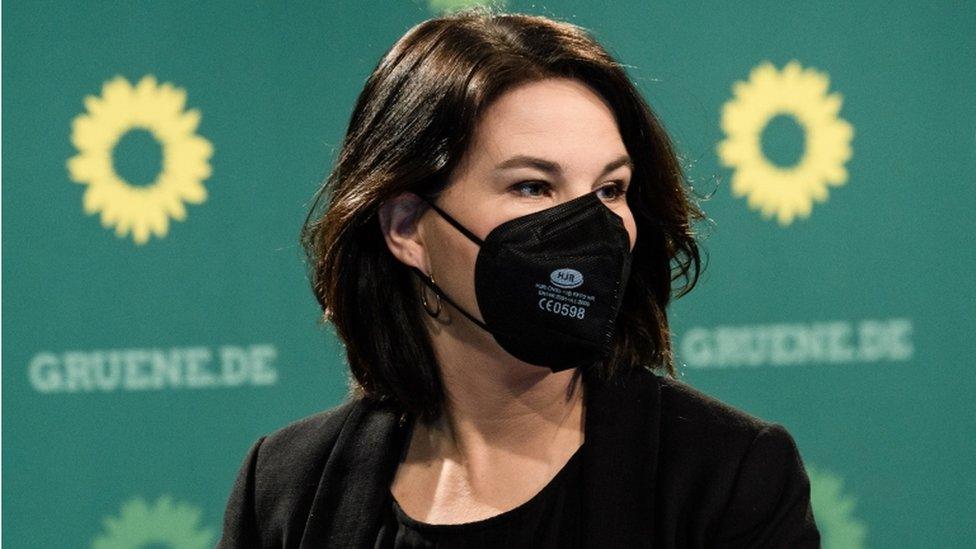
- Published11 April 2021
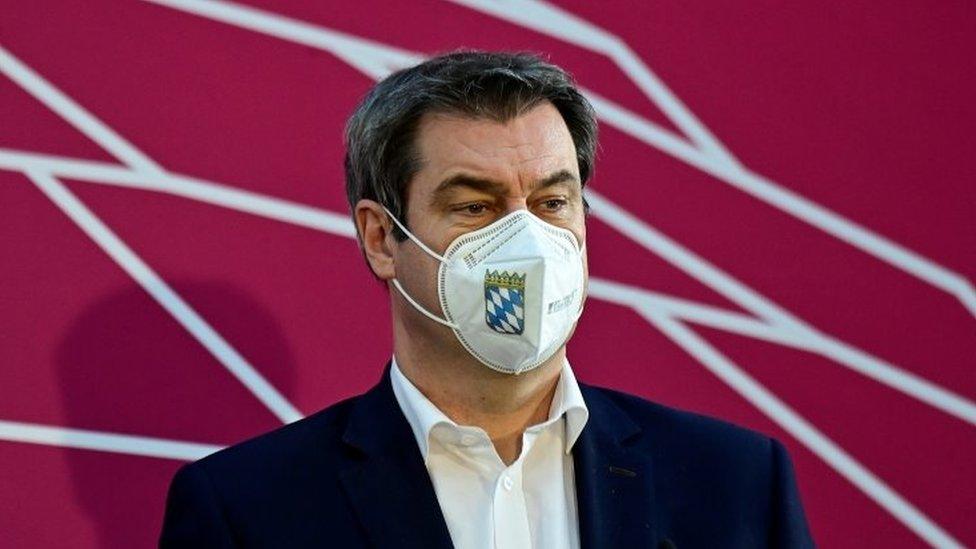
- Published9 April 2021

- Published27 March 2021
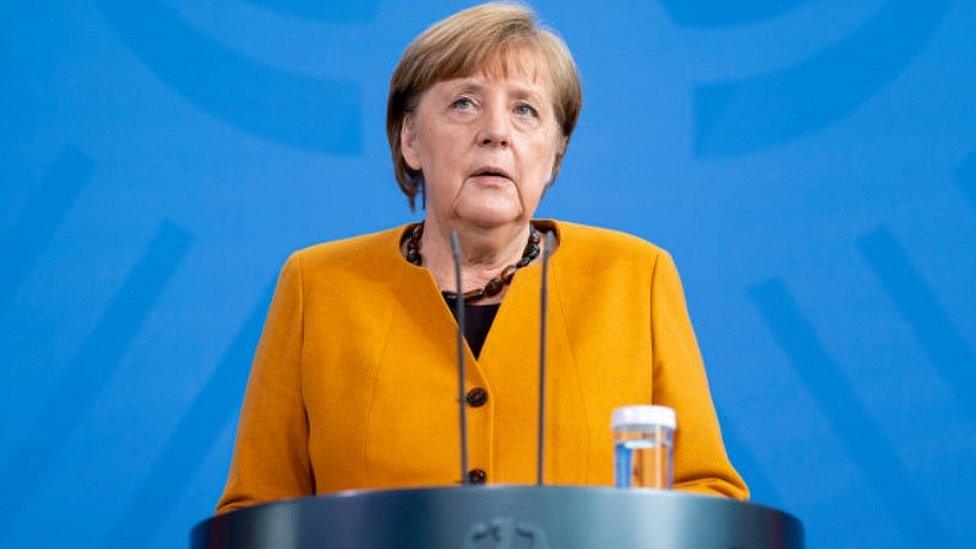
- Published3 June 2019
